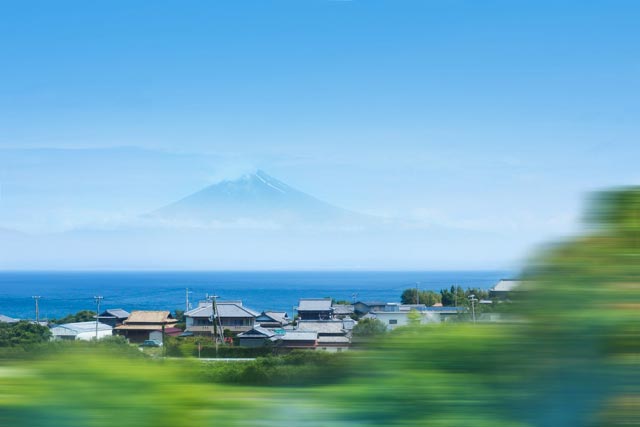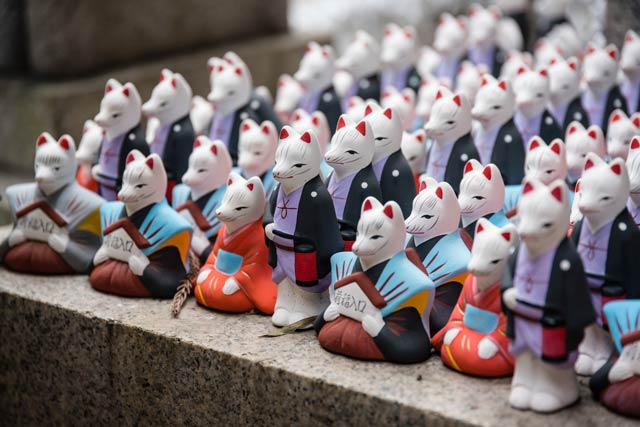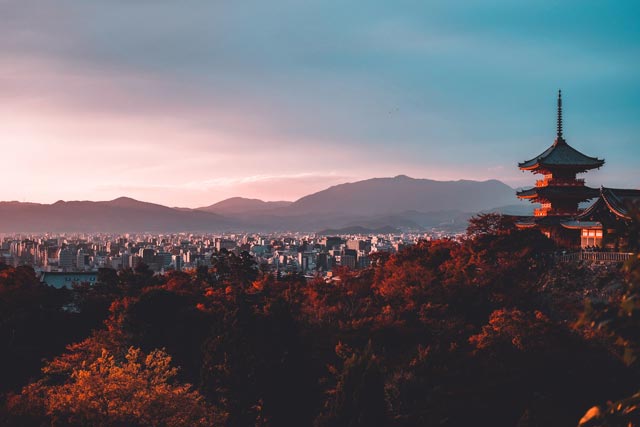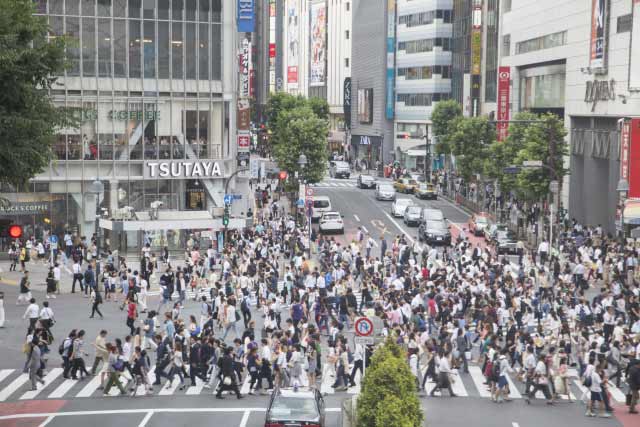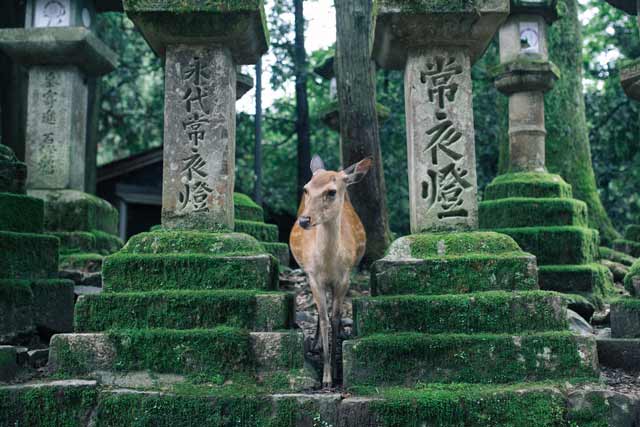Working Holiday in Japan Guide
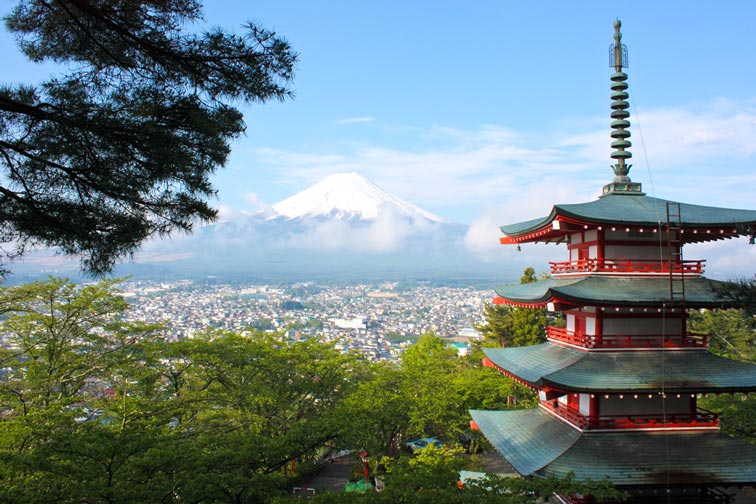
by Florian
A Working Holiday is an uncomplicated and exciting way to experience a foreign country. Have you always wanted to live in Japan for a while? Then find out more about how to spend a year in Japan!
コンテンツ
What is a Working Holiday?
Working Holiday allows young people between the ages of 18-30 to work and travel in Japan for up to one year. The purpose of a Working Holiday is to offer young people the opportunity to experience other cultures and increase mutual understanding across borders.
To make this possible the working holiday visa gives holders of a Working Holiday visa two things tourists can only dream of. More time to explore the country and the opportunity to take on jobs to support themselves during their travels.
If you always wanted to explore Japan at your own pace, getting a Working Holiday visa is a great way to do so!
Why Work and Travel in Japan?
Arguably Japan’s culture in all its forms holds the greatest for anyone interested in visiting the country. This pretty much hasn’t changed since Japonism first became a thing back in the 19th century.
While it’s probably a good idea to have a less … exoticizing look on the country nowadays, for many a fascination with one or more aspects of Japanese culture is what that makes them want to visit. Martial arts, samurai, ninja, beautiful, anime, manga, tea ceremony, fashion (think Harajuku), J-Pop, you name it. I was no different.
Maybe you always wanted to live in Japan for a while to experience what you love first-hand, or you just want to have a unique experience in a place completely different from your home country.
In both cases, a Working Holiday in Japan is an easy way to do exactly that.
While the number of tourists coming to Japan and foreigners living here has increased over the years, it’s still not exactly a common place to go to. So doing a Working Holiday in Japan is guaranteed to get you some interesting stories to later tell your friends at home.
Who can do a Working Holiday in Japan?
First of all, you have to be a national of one of the countries in the list below. Since the visa application will be handled in that country, you also have to currently live there.
- ✔ Australia
- ✔ New Zealand
- ✔ Germany
- ✔ Denmark
- ✔ Norway
- ✔ Portugal
- ✔ South Korea
- ✔ Canada
- ✔ Taiwan
- ✔ France
- ✔ Hong Kong
- ✔ United Kingdom
- ✔ Poland
- ✔ Spain
- ✔ Ireland
- ✔ Slovakia
- ✔ Austria
- ✔ Hungary
- ✔ Argentina
- ✔ Chile
Aside from the nationality, there are a few other requirements like having no criminal record, bringing no dependents with you and having reasonable funds for the stay or a return ticket. Further information you can find in our working holiday visa article.
Work in Japan – Jobs you can do
While in Japan, you’ll be able to choose from a pretty wide variety of jobs. We introduce the most common options below.
Most jobs will require you to keep working for at least three months. There are jobs with shorter work time periods specifically intended for working holiday makers, but those are the exception. You’re most likely to find them in the hospitality industry (e.g. traditional ryokan) or on farms.
And now, here are the most common jobs you will find in Japan.
Language Teacher
Teaching English is one of the most popular job choices for foreigners first coming to Japan. Most teach at English conversation schools (英会話, eikaiwa) but you can also work at a language café or can teach as a freelancer, giving one-on-one lessons or offering your services online.
Farm Work
You want to get to know Japan more intimately and to experience rural Japan? Then farm work can be a great opportunity. Many places will provide lodging and food in return for your work, so it is a great way to live cheaply.
Au pair/Kindergarten
With some Japanese, you could find a job at an international daycare center or with a Japanese family looking for someone to look after their kids and home during the day.
Hotels, ryokan, and ski resorts
You think it sounds fun to work where other people come for vacation?
Surfing in the summer, skiing in the winter, or just enjoying nature, if that’s you then jobs at holiday locations by the sea or in the mountains can be a good choice. Japanese skills requirements vary depending on the position, so look around for a good fit.
Service Industry
You could also work at restaurants or cafes. Depending on your Japanese skills you might be serving customers or be in the back, washing dishes. You could even be packing those cute bento boxes.
Cleaning jobs, carrying mail, and working at a factory or moving company are other possible positions.
Shop Clerk
Even if you have not yet mastered Keigo, it is possible to work at convenience stores and supermarkets. These jobs will give you a chance to be around Japanese people and allow you to practice your speaking skills all day. There usually are tight manuals for interaction with customers, so if you just follow the rules, doing a good job shouldn’t be too difficult (even with lower Japanese skills).
Photo Model and TV performer
Yes, you might be able to make some money by standing in front of a camera. Especially the demand for western models is high. Please note that most jobs in this category will be project-based and are paid per day of shooting, sometimes 2-3 months later. Best don’t expect it to be the source of your regular income.
Sports Instructor
This one is a bit more specific, but if you happen to have a teaching license for a specific sport (e.g. soccer or basketball), you could also become an instructor. Depending on who you’re instructing – Japanese people, tourists, or both – some Japanese skills might be necessary.
Travel in Japan
Staying here long-term means you’ll be able to see more and explore different kinds of places than the usual tourist.
Tourist travel schedules are designed to cover as much ground as possible in a minimal amount of time. But when you’re here for a year, you have the freedom to be as “time-inefficient” as you want.
Depending on your budget, you could lazily spend two weeks (or longer) in the countryside, take the sleeper train to Izumo and back, make a bicycle trip from Tokyo to Kyoto, take your time exploring Japan’s hot springs, or even do the whole 88-temple pilgrimage on Shikoku. So many possibilities!
Being able to work anywhere (as long as you meet the requirements) makes traveling a lot more flexible. You could help out with farm work in Kyushu for a few months, move to Tokyo and teach English for a while, later go to Hokkaido and work at a convenience store.
By combining work at different “home bases” with travel, you’ll be able to craft a truly unique time for yourself.
Other things you can do during a Working Holiday
While it is called “Work and Travel”, there are other things besides those two that you can do as well.
If your plan is to have another long-term stay here, you could always study Japanese at a language school. Improving your language skills will help you make the most of your stay and also make it easier for you to get accepted into university programs or get a job later on (when you can’t rely on the handy working holiday visa for coming here anymore).
If you want to do something out of the ordinary, volunteering is another option. While you won’t get paid, there are some unique experiences you can only get as a volunteer. For possible options, check out sites like HandsOn Tokyo, Second Harvest or Foreign Volunteers Japan.
If you already have a specific career path in mind, consider doing an internship. Salaries for paid internships usually are at least as high as those of common part-time jobs, so you won’t “miss out”. Even if the internship is unpaid, accumulating some first work experience in the field of your choice (and an international setting) can be useful for your future.
How much can you earn?
Typical Salary in Japan
As an estimate expect an hourly wage of about 890 to 1500 Yen/Hour depending on the job. There are some higher paying jobs but most of the time you’ll be hired as a short-term, unskilled laborer. If you want to set your own schedule and prices, consider working freelance or as a teacher.
To get a realistic estimate, try calculating at the bottom end with around 1000 Yen per hour.
READ ON Understanding Minimum Wage in Japan
Taxes
You will have to deal with two types of taxes in Japan.
Consumption tax
Japan has a consumption tax of 8% on goods and purchases.
Pay attention to the small print when you go shopping. Many shops will advertise the price before tax (税抜, ぜいぬき) instead of the price including tax (税込, ぜいこみ). Check for these marks to avoid confusion at the register when you are asked to pay more than you anticipated.
Income tax
With a working holiday visa, you have to pay 20% in taxes.
Since you will typically stay in Japan for less than 12 months you have to pay the “non-resident tax.” For residents, the tax rises proportionally with the income, while non-residents have a fixed flat rate percentage.
That said since the tax will be deducted directly from your salary you won’t have to worry about it. Note that it is not possible to receive any tax refunds.
You will be taxed only on Japanese income. For example, imagine you work freelance online, doing an international job and getting paid in Australian Dollars. In that case, you do not have to pay taxes on it in Japan (you may have to pay taxes for it in Australia though).
Living expenses
The bulk of your daily expenses is going to fall into three categories: Rent, food and drink, and transportation.
Costs for rent, of course, get lower as you move out of the big cities and to the more rural places. Finding a place to live might not be as easy in the countryside, but it’s definitely cheaper. In big cities like Tokyo, you may want to choose a share house or other short-term accommodation outside of the central areas. As soon as you leave the “core area” of the city, prices usually start dropping pretty fast.
Food and drink are another expense to consider. The most money-efficient option is to find a cheap supermarket in the area where you live, buy all your stuff there and cook yourself. Eating out all day can quickly end up costing more than you anticipated.
Especially when you’re going to travel, but also during everyday life, e.g. your commute to work, you will have to rely on some method of transportation. Depending on your method of choice – train, car, bicycle or just plain old walking – the money you’ll have to invest for getting around can change considerably.
READ ON Living Expenses and Saving Tips for Japan
Accommodation
In general, there are two main options: share house or apartment. Among the two, a share house will likely be the more convenient option.
Japanese apartments are usually contracted for 2 years, so even if you somehow manage to get a contract, canceling after the first year might get expensive. Also, since most apartments are unfurnished, you’ll have to buy your own furniture and appliances which can quickly add up, even if you find good deals.
Booking a room at a share house in advance probably is the most comfortable and stress-free way to your first accommodation. In most cases, water, gas, electricity, and internet are already included in the price. Share houses allow for short-time rent (1~3 months) and the initial procedures (contract signing etc.) are fairly uncomplicated.
Alternatively, renting a hostel room for the first days and looking in Japan is also possible. This way, you can see the room and facilities before making your final decision.
If you want to stay with a host family you will need a bit of luck – they are quite rare. In rural areas some workplaces provide lodging and food as part of your compensation and may be able to provide a similar experience.
Health, Insurance & Co.
Having travel health insurance is a requirement for the working holiday visa in many countries. When in Japan, you can join the national health insurance (国民健康保険, こくみん けんこう ほけん), but you don’t have to. The Japanese insurance covers 70% of costs – which is less than in most other countries – so your travel health insurance might be sufficient.
Other insurances to consider are travel cancellation insurance (in case you’re worried about not being able to make the trip after all) and liability insurance (if you know that the place you’ll be working at doesn’t offer it for their employees).
If you plan to use a credit card from your home country in Japan or get one once you get here, check out our article on credit cards in Japan.
Is a Working Holiday right for you?
If you answer yes to any of the questions below, the working holiday visa could be a good option for you.
- You want to
- ✔ travel long term
- ✔ live in Japan (without strings attached)
- ✔ study Japanese at your own pace
- ✔ work in Japan
- ✔ follow your passion
- The working holiday visa will give you the benefits of
- ✔ a longer stay
- ✔ the ability to work
- ✔ the perk of being a resident, having access to more services
Can you organize a working holiday by yourself?
Yes, it is possible to organize your whole working holiday trip by yourself.
Using an organization has its benefits, like being able to rely on outside support in difficult situations and having starting jobs and accommodation recommended to you. However, all that comes with a price tag. It’s probably a good idea to look at what services some organizations are offering and then decide whether you want the extra support or would rather save your money for travel.
Finding a job after coming here can take 1-2 months, so think about what to do during those first weeks and maybe line up an internship or take a (short-term) language school course first. You can easily apply for these from your home country, whereas finding a job from abroad can be a little more difficult.
Finding a place to stay is also something to consider . At least in Tokyo you shouldn’t have any issues renting a room at a share house, but if you want to start your year in a smaller city or even the countryside, you’ll have to put in some research work beforehand.
How to get started
So, you’ve decided to do a Working Holiday in Japan. Now, where should you get started?
1. Learn some Japanese.
Even rudimentary knowledge can be of use when it comes to everyday situations. Start with Hiragana/Katakana as well as some common greetings and phrases, then go from there and put in as much effort as possible in the remaining time.
2. Get your visa.
No matter how great your plans are, they won’t be possible without permission to spend your time here. Make sure to apply early enough in advance and have the necessary documents ready. Find more info about the working holiday visa itself here.
3. Start looking for possible jobs.
Japan isn’t exactly cheap to live in, so even if you have some cash saved up, quickly getting a job for sustaining your life is probably a good idea. Try websites like Workaway, Baitoru or the Job Board of the Japan Association For Working Holiday Makers.
This was quite a long read, but now you should be familiar with the basics for a working holiday in Japan. You won’t be able to do it forever – so if you’re interested, start your research and preparations now!
Recommended Posts

May Sickness: A Japanese Phenomenon
10 5月 2021 - Daily Life, Life

